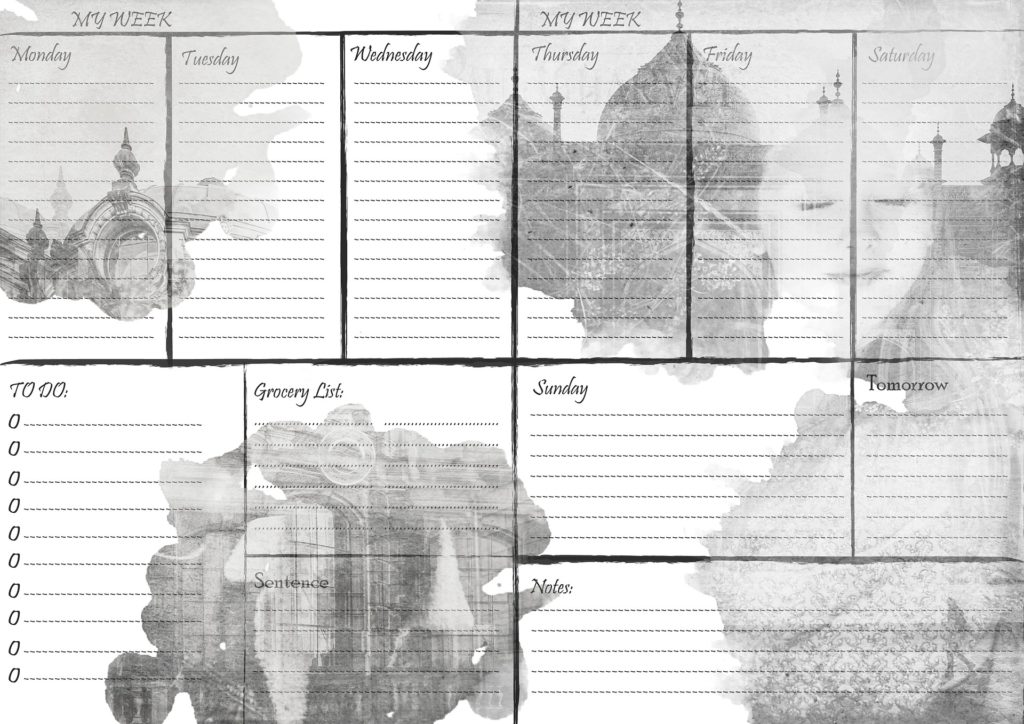
“Dawn, why don’t you…”
“Because it’s a waste of my time.”
“But… .”
There are no ‘but’s.
What the hell am I talking about? Book promotion, that’s what.
As an author, specifically and mostly a novelist, I write ’em — books, that is, (used to publish them, too …until the pirates pissed me off) — but I’m not interested in spending my life chasing futility, much less paying for the dubious honor of being stupid …which is what happens when and if you fall for all the bullshit out there about book promotion.
Oh, sure Number One: Release a new book, and, maybe, a past reader will care, if they see the promo, always chancy because emailed announcements get ignored, posts on social media don’t get seen, ads get missed and blocked.
Release new books regularly, as in every three months, and, yes, you’ll sell some, both the new and some from your back catalog. It’s all predicated on luck and happenstance, though. There are no guarantees.
Oh sure Number Two: Facebook advertising works and doesn’t have to cost an arm and a leg …or, maybe I should say, will cost only an arm and a leg, depending on your target demographics.
And, yes, oh, sure, Number Three: Amazon advertising works, with the same caveat as with Facebook.
Newsletters? Oh, sure Number Four: You’ll sell some books because you dun your mailing list subscribers, but you’ll also net a whole bunch of ‘unsubscribes’ in the process, people who will never, ever buy another book from you because you pissed them off by hitting their inbox at the wrong time.
Reality: A check of the numbers, especially when penciled out against time and money spent, means that you are, literally, paying for the privilege of irritating people who may be somewhat interested in your new release …maybe, but, mostly, are irritated by getting yet another “See? Look! I just released another novel” dun on their social media notifications or in their inbox.
I’m sorry, but my time is worth money, plus, I’m not interested in providing folks an extra excuse to dislike me more than they already do because I’m a mouthy, opinionated so-and-so. I especially am not interested in alienating those who do appreciate me because I am a mouthy, opinionated so-and-so, but who don’t like having me push my novels at them. And I’m certainly not into paying for people to unlike, unfriend, and unsubscribe …which is what happens, much as the “How to Sell Your Book” gurus don’t share that consequence — a real consequence!
And that brings me to the “How to Sell Your Book” gurus.
Did you ever notice that the “How to Sell Your Book” gurus never offer to use their “guaranteed formula” they claim works so well to sell your book? That’s because they know that their “tried and true” system doesn’t work. Did it and did they offer such a service, there isn’t a book author out there who wouldn’t part with 50% or even 100% of their royalties for becoming a ‘known’ author to readers. Heck, wannabees would flock to cash in on the service at 1k, 2k, maybe even 5k in USD $$$$ per book. Heck, the gurus would be rolling in the dough, wouldn’t they?
 But, no. That’s not what the “How to Sell Your Book” gurus are selling …for a good reason. They couldn’t do it. Their tried and true method would not work, even for them. It’s all smoke and mirrors, and they know it. They know they’d be spending innumerable futile hours, getting way less than minimum wage trying to, no matter how many starving third worlders they employed at pennies a day to plug in their magic formulas.
But, no. That’s not what the “How to Sell Your Book” gurus are selling …for a good reason. They couldn’t do it. Their tried and true method would not work, even for them. It’s all smoke and mirrors, and they know it. They know they’d be spending innumerable futile hours, getting way less than minimum wage trying to, no matter how many starving third worlders they employed at pennies a day to plug in their magic formulas.
Instead, they take the easy route to fame and profit. They sell their “guaranteed formula” for success to hungry-for-fame-and-profit book authors, their guarantee only valid (read the fine print) if you meticulously follow all their rules and keep at it …forever. Oh, and buy their latest how-to book, because, y’know, don’t you? The market is always changing, so you’ve got to have the latest greatest along with their previous books on the subject. (“Secret #4 referenced in book 1, secret #9 referenced in book 2… .”)
Here’s the deal: Most all the folks who claim to have the inside edge on how to sell your books make their livelihood and niche best seller fame by selling “How to Sell Your Book” books to pantingly desperate and gullible authors. Now, while some of those methods worked for the instances shown, they don’t work by the time the “How to Sell Your Book” book hits publication. It’s a done deal, that strategy only working for a few weeks, maybe months at the outset for the strategy’s originator and a handful of others who immediately copied them. After that, nope. But the ‘how-to’ formula is still saleable, of course.
Well, what about services like Book Bub and Book Gorilla?
Book Bub is expensive and a PITA to get into (See concluding sentence of paragraph below.); Book Gorilla, inexpensive. But you know who signs up to those mailing lists? Authors interested in checking out those services as a possible path to more sales. (It’s part of the sign-up process, getting you on their mailing list.) The other most notable demographic are Bargain Basement book shoppers, mostly those who read lots and lots of Big R romance. Oh, sure, Number Five: Bargain Basement book shoppers will always grab freebies and, maybe, 99 centers. But that’s it. They ain’t into payin’ for books. It’s gotta be free or dirt cheap.
Onto oh, sure Number Six: There are a minuscule percentage of readers on those Book Bub and Book Gorilla mailing lists that actually are interested in discovering new authors and are willing to actually pay for subsequent books from an author’s catalog, but those folks are rare as hen’s teeth (and, for those not in the know, hens don’t have teeth. Hence, their ‘rarety’. That’s the irony embedded in the saying.) Oh, and, PSST! Book Bub has now become the tool of Trad Publishing, don’t you know? Indies really need not apply, please.
I’ve already covered “How to be a Hugely Successful Published Author“. If you want to know my secret for promoting my books, it’s this: I occasionally and prudently advertise. I put my dead tree books in shops I know will attract buyers. And how about on the Net? My advice: Be yourself. Be active and interesting. Don’t badger people with duns to buy your books or keep announcing them over and over, ad infinitum. It’s enough to put the covers there for the seeing. Folks who become interested in you, the person, might happen to finally decide to read one of your books. And, if they like them, they might buy more of your titles.
If you seriously want to write books for a living, I suggest you either write the consistent best selling genre on Amazon — erotica/BDSM — or find some hungry non-fiction, self-help niche …like book authors seeking the magic secret to fame and fortune, then pump your books out at a rate of one every couple to three months, because, anymore, that’s about what you’re going to have to do for folks not to forget you and your books exist.





 And, of course, this is where my brain releases devils within details, the first and foremost being that, in order to do #1 on the list, you have to have previously mastered #5, no small feat for many. Heck, for the majority, it’s tough to even muster enough self-discipline to get up in the morning in time to shower, dress, and head out for the day job with enough time to spare that some unforeseen delay like a train at a railroad crossing doesn’t send them into a frothing frenzy because they’re going to wind up fifteen minutes late for the job …again. Hence, you see that frenetic driver, their body leaned forward in urgency as they weave in and out of traffic to then cross three lanes in a dive for their exit, tires smoking as they round the last corner to scream into the employee parking lot.
And, of course, this is where my brain releases devils within details, the first and foremost being that, in order to do #1 on the list, you have to have previously mastered #5, no small feat for many. Heck, for the majority, it’s tough to even muster enough self-discipline to get up in the morning in time to shower, dress, and head out for the day job with enough time to spare that some unforeseen delay like a train at a railroad crossing doesn’t send them into a frothing frenzy because they’re going to wind up fifteen minutes late for the job …again. Hence, you see that frenetic driver, their body leaned forward in urgency as they weave in and out of traffic to then cross three lanes in a dive for their exit, tires smoking as they round the last corner to scream into the employee parking lot. Let’s take a look at those, shall we? Write and publish a book a year, and — very important this — scheduling the time to write that book. Okay. Do-able. …For some.
Let’s take a look at those, shall we? Write and publish a book a year, and — very important this — scheduling the time to write that book. Okay. Do-able. …For some. How about just a weekly plan?
How about just a weekly plan? In a word, don’t. Not even if you’re a best-selling, trad pubbed author with an awesome advance release team and publicist, plus an in on Oprah …unless,of course, you’re the mob boss in some mafia, syndicate, or cabal with enough influence that will guarantee the numbers you set yourself, by hook or by crook.
In a word, don’t. Not even if you’re a best-selling, trad pubbed author with an awesome advance release team and publicist, plus an in on Oprah …unless,of course, you’re the mob boss in some mafia, syndicate, or cabal with enough influence that will guarantee the numbers you set yourself, by hook or by crook.
 But, no. That’s not what the “How to Sell Your Book” gurus are selling …for a good reason. They couldn’t do it. Their tried and true method would not work, even for them. It’s all smoke and mirrors, and they know it. They know they’d be spending innumerable futile hours, getting way less than minimum wage trying to, no matter how many starving third worlders they employed at pennies a day to plug in their magic formulas.
But, no. That’s not what the “How to Sell Your Book” gurus are selling …for a good reason. They couldn’t do it. Their tried and true method would not work, even for them. It’s all smoke and mirrors, and they know it. They know they’d be spending innumerable futile hours, getting way less than minimum wage trying to, no matter how many starving third worlders they employed at pennies a day to plug in their magic formulas.

